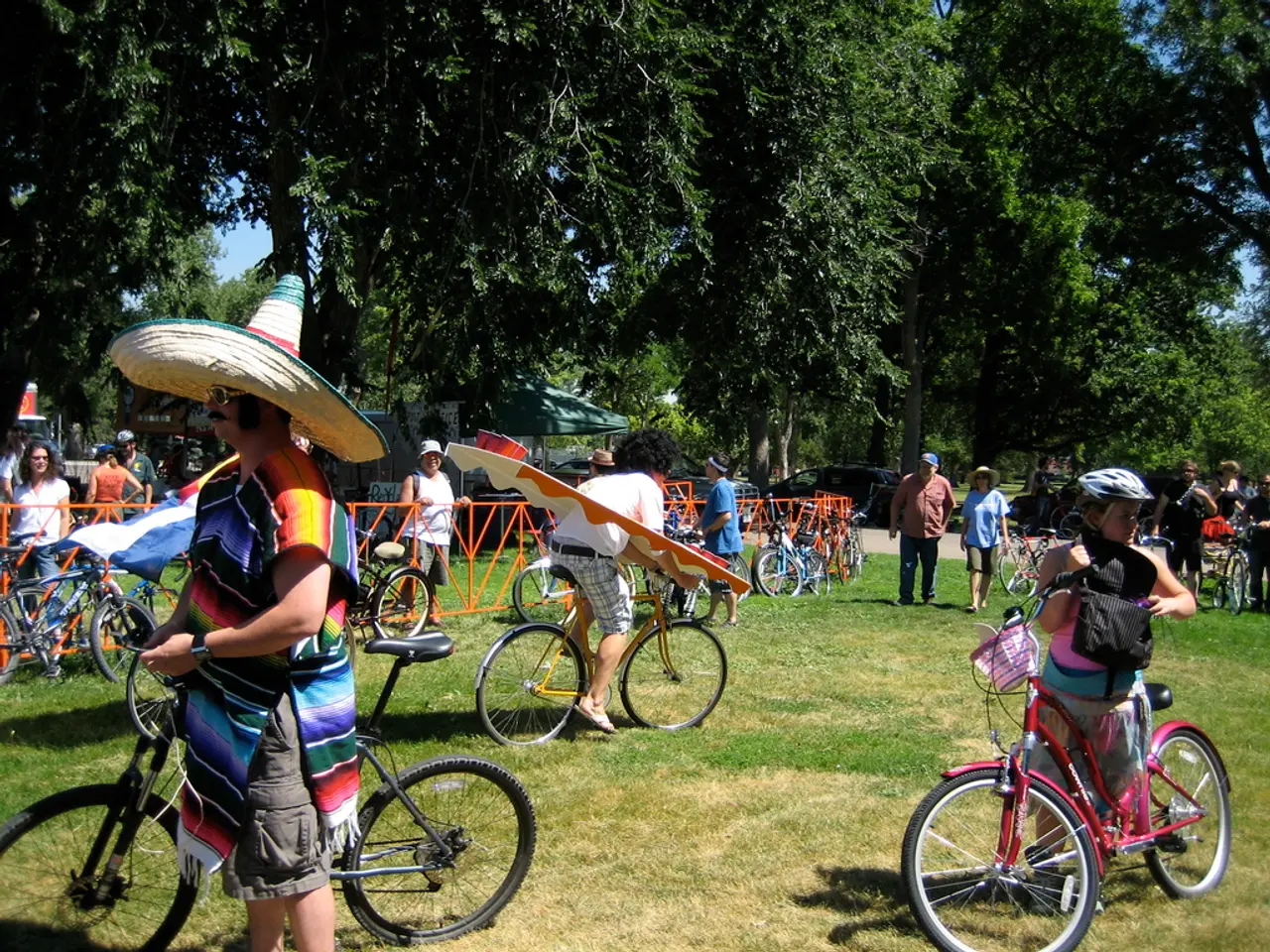Politics' influence over public lands serves as a warning: bike enthusiasts cannot ignore political arena participation.
In the vast and stunning landscapes of the American West, cyclists find more than just challenging terrain and breathtaking views. These protected public lands, managed by the Forest Service and the Bureau of Land Management (BLM), are a treasure trove of unforgettable cycling experiences. However, the future of these cherished spaces is under threat, and the cycling community must rise to the occasion to safeguard them.
Recent developments in U.S. legislation have highlighted the need for vigilance and action. A major provision to sell millions of acres of federal lands, including National Forests and BLM lands, has been removed or significantly scaled back from recent Republican-led budget reconciliation bills. While this is a temporary victory, the commitment of key politicians to revisit land sales in future legislation underscores an ongoing threat to public lands.
The "Big Beautiful Bill," originally proposing the sale of over 3,200 square miles of federal land, faced widespread criticism from conservation groups. Earlier versions of the bill included provisions with very limited exemptions, potentially opening more than 250 million acres of public lands—including wilderness and critical habitats across 11 Western states—for sale to any interested party. This was seen as a threat to important natural landscapes.
The revised proposals now emphasize land sales aimed at housing development, with added processes to moderate sales. However, the cycling community must remain vigilant, focusing on preventing expansions of powers that threaten conservation.
To help prevent such actions, the cycling community can employ several strategies. Staying informed and raising awareness about legislative developments that could impact public lands, especially those used for recreation like cycling trails, is crucial. Engaging in grassroots advocacy by contacting Senators and Representatives to express opposition to land sales that threaten public land access and conservation is another prudent step.
Supporting and partnering with environmental organizations and land trusts that actively lobby against public land disposals and promote conservation and sustainable recreation is also essential. Participating in public comment periods and hearings related to land management and sales proposals provides a strong voice for the cycling community's interests.
The cycling community can also demonstrate the economic and social value of protected public lands by emphasizing their importance for outdoor recreation, health, and local economies. Monitoring and challenging any rollbacks of existing protections, such as the Great American Outdoors Act or funding for land and water conservation, which could indirectly facilitate land disposals, is another key strategy.
The drive to commodify and individualize the world at the expense of conservation and the common good is a concern for all, regardless of political affiliations. The threat of selling public lands sets a dangerous precedent that what belongs to all of us can be carved up and handed over to private interests.
For the cycling community, protecting public lands is not just about preserving beautiful natural spaces for future generations to enjoy. It's about access, safety, and the freedom to explore shared spaces. The next political attacks could target laws designed to protect vulnerable road users, undermining the very foundations every cyclist relies on.
By combining vigilance, advocacy, and community organization, the cycling community can help safeguard National Forest and BLM lands from being sold off and ensure continued access to these critical recreational and natural resources. The love for cycling influences the author's concern about the potential impact of legislation on their hobby and the beautiful natural places they ride in. Let's join together to ensure the future of cycling and the preservation of our public lands.
[1] Source: National Resources Defense Council (NRDC) - [https://www.nrdc.org/stories/big-beautiful-disaster-public-lands-face-new-threats-congress] [2] Source: The Hill - [https://thehill.com/policy/energy-environment/574424-senate-parliamentarian-ruling-blocks-land-sales-provision-in-reconciliation] [3] Source: Center for American Progress - [https://www.americanprogress.org/issues/green/reports/2021/03/08/496848/big-beautiful-disaster-public-lands-face-new-threats-congress/] [4] Source: The Wilderness Society - [https://wilderness.org/publications/blog/congress-takes-aim-public-lands-again]
- The science of environmental science indicates the necessity of preserving public lands to mitigate climate-change impacts.
- In the realm of education and self-development, understanding the environmental consequences of land sales is crucial for personal growth and mindfulness.
- The policy-and-legislation proposals threatening public lands could also impact career-development opportunities in the field of environmental conservation.
- In the broader context of political issues, the fight to safeguard public lands is a matter of general-news significance.
- The cycling community's involvement in preventing land sales will contribute to the overall learning process of lifelong-learning and skills-training.
- The rollbacks of existing protections, as a result of crime-and-justice-related activities or accidents, may indirectly facilitate land disposals, requiring constant vigilance.
- The online-education platform can serve as a resource for learning about land sales and how to participate in job-search opportunities to support environmental organizations.
- Sports, such as cycling, can provide a unique and engaging way to raise awareness and advocate for the importance of public lands, beyond traditional politics.
- The danger of war-and-conflicts arising from the privatization of public lands further emphasizes the need for actively engaging in policy discussions.
- The intermediate outcome of the recent proposed land sales, while temporary, is a reminder of the importance of ongoing goal-setting and commitment to conservation.
- The cycling community's collective efforts can contribute to the prevention of car-accidents and fires in protected public lands, benefiting the entire environment and society.
- By standing together, the cycling community and various environmental organizations can extend their influence in the realm of sports-betting, potentially mobilizing a significant force for change in land conservation policies.




